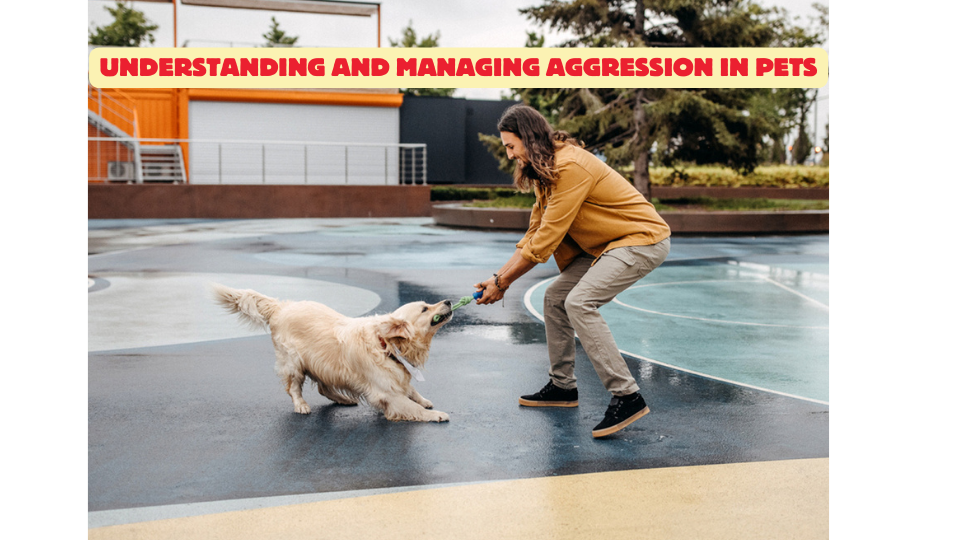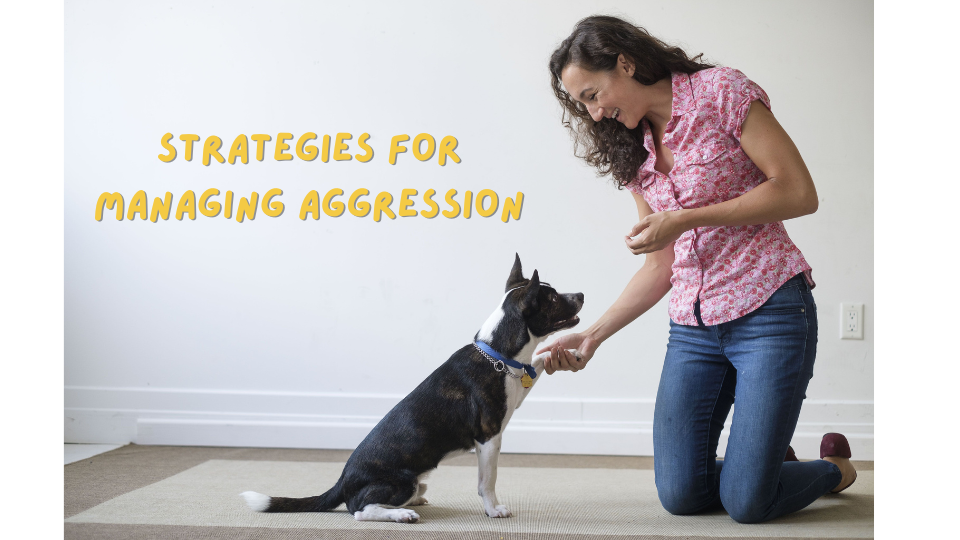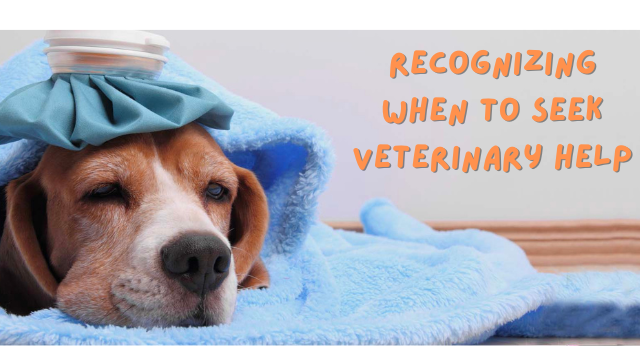
Introduction
Aggression in pets can be a challenging and distressing issue for pet owners. Whether it’s a dog growling at strangers or a cat swatting at family members, understanding the causes of aggression and learning how to manage it is crucial for maintaining a peaceful home environment. This guide provides insights into the causes of pet aggression and offers practical strategies for managing and reducing aggressive behavior.
Let’s explore some of the best personalized creative gifts for dog lovers that are sure to make their day special.
Understanding the Causes of Aggression in Pets
Behavioral Triggers
Aggression in pets often stems from specific behavioral triggers. These can include:
- Territorial Behavior: Pets may become aggressive when they feel their territory is being threatened.
- Protective Instincts: Aggression can arise from a desire to protect their owners, food, or toys.
- Resource Guarding: Pets may show aggression when they feel their resources, like food or toys, are at risk.
Fear and Anxiety
Fear and anxiety are significant contributors to aggressive behavior in pets. Common signs of fear-induced aggression include:
- Cowering or Hiding: Pets may try to make themselves small or hide when scared.
- Excessive Barking or Hissing: Vocalizations are often a sign of distress.
- Pacing or Restlessness: Anxious pets may show restless behaviors.
Medical Issues
Sometimes, aggression is rooted in medical issues. Pain or discomfort can make pets more irritable and prone to aggression. Common medical conditions that can lead to aggressive behavior include:
- Arthritis: Painful joints can cause irritability.
- Dental Problems: Oral pain can lead to unexpected aggression.
- Neurological Issues: Conditions affecting the brain can alter behavior.

Strategies for Managing Aggression
Socialization
Proper socialization is essential for preventing and managing aggression:
- Early Socialization: Exposing pets to various environments, people, and other animals early in life can reduce fear and anxiety.
- Controlled Exposure: Gradually introduce your pet to new experiences in a controlled manner to build confidence and reduce fear.
Positive Reinforcement
Positive reinforcement is a powerful tool for managing aggression:
- Reward Good Behavior: Use treats, praise, and affection to reward your pet for calm and non-aggressive behavior.
- Ignore Negative Behavior: Avoid giving attention to aggressive behavior, as it can reinforce the action.
Professional Training
When aggression is severe, seeking professional help is advisable:
- Certified Trainers: Work with certified animal behaviorists who have experience dealing with aggressive pets.
- Behavior Modification Plans: Professional trainers can develop tailored behavior modification plans to address specific issues.
Practical Tips to Reduce Aggressive Behavior
Consistent Routine
Maintaining a consistent routine can help reduce anxiety and aggression in pets:
- Regular Schedule: Feed, walk, and play with your pet at the same times each day to create a sense of security.
- Predictable Environment: Keep changes in the environment to a minimum to avoid stressing your pet.
Calming Products
There are various products available to help calm aggressive pets:
- Calming Sprays and Diffusers: Products like Feliway and Adaptil release calming pheromones.
- Thundershirts and Vests: These garments apply gentle pressure to help reduce anxiety.
Safe Spaces
Creating a safe space for your pet to retreat to can help manage aggression:
- Designated Area: Set up a quiet, comfortable area with your pet’s bed, toys, and water.
- Access Control: Ensure your pet can access this space whenever they feel stressed.

Recognizing When to Seek Veterinary Help
Signs to Watch For
Knowing when to seek veterinary help is crucial for managing aggression:
- Sudden Changes: Sudden, unexplained aggression should be evaluated by a vet.
- Severe Aggression: If your pet’s aggression is severe or escalating, professional intervention is needed.
- Other Symptoms: Aggression accompanied by other symptoms like lethargy, loss of appetite, or behavioral changes may indicate an underlying health issue.
Veterinary Consultation
A veterinary consultation can help identify and treat the root causes of aggression:
- Behavioral Assessment: Vets can assess your pet’s behavior and recommend appropriate treatments or interventions.
- Medical Treatments: If medical issues are identified, vets can provide treatments to alleviate pain or discomfort contributing to aggression.
Conclusion
Understanding and managing aggression in pets is essential for ensuring a harmonious home environment. By recognizing the causes of aggression, implementing effective management strategies, and knowing when to seek professional help, pet owners can reduce aggressive behaviors and foster a peaceful relationship with their pets.
Reference
Creating a pet-friendly environment in your home is essential for ensuring the safety, comfort, and well-being of your furry friends. This guide will provide you with practical tips and ideas on how to transform your living space into a pet-friendly haven.
FAQs
- What causes aggression in pets?
- Aggression can be caused by behavioral triggers, fear, anxiety, or medical issues.
- How can I safely manage my pet’s aggression?
- Use positive reinforcement, establish a consistent routine, and consider professional training.
- Are there specific training methods for aggressive pets?
- Yes, positive reinforcement and professional training can be effective for managing aggression.
- When should I consult a veterinarian about my pet’s aggression?
- Consult a veterinarian if aggression is sudden, severe, or if there are other concerning symptoms.
- Can diet impact my pet’s aggressive behavior?
- Yes, diet can affect behavior, and a veterinarian can provide guidance on nutritional changes.
Relevant Quote
“The greatness of a nation and its moral progress can be judged by the way its animals are treated.” – Mahatma Gandhi
By following these strategies, pet owners can effectively manage aggression in their pets and create a harmonious living environment.

